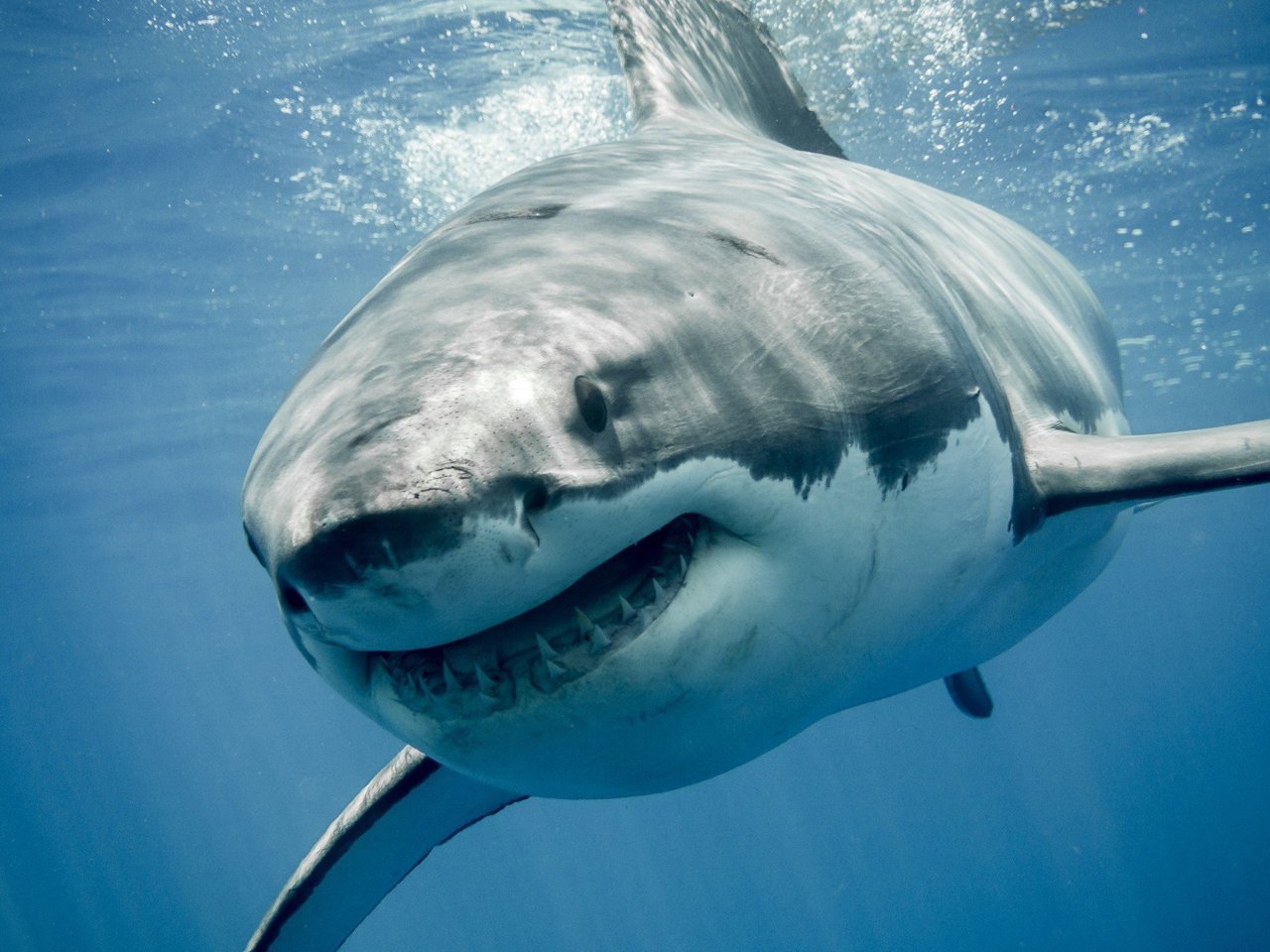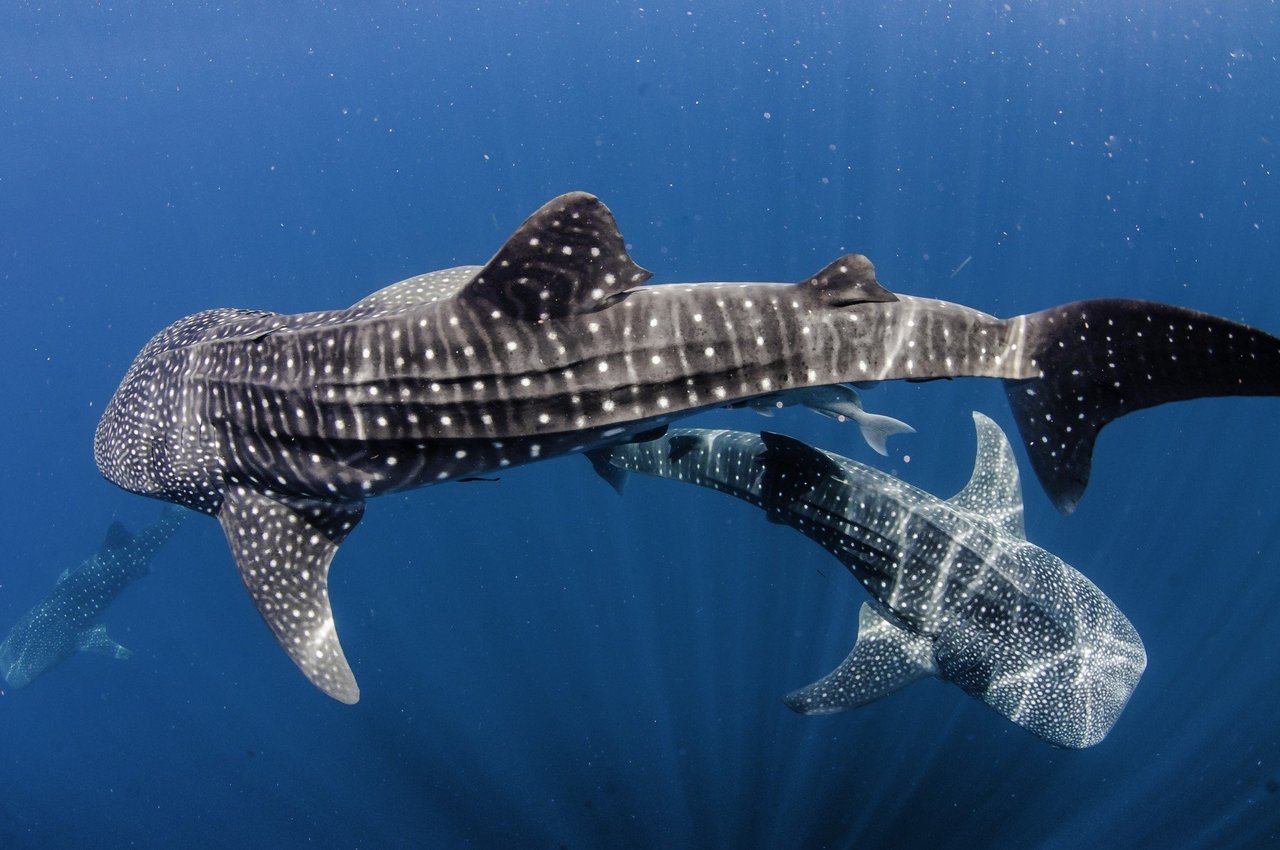
Did you know sharks don't have any bones?
Though feared by many, sharks are fascinating animals who deserve our respect. Read on for nine amazing facts about sharks!
1. Sharks eat their meals only 1-2 times per week.
Because sharks do not need to maintain a high body temperature, they do not require daily meals and spend the remainder of their days digesting. Each meal is anywhere from 1-10% of their body weight.
2. Sharks have no bones.
Such giant animals must surely be held together by bones, right? Surprisingly, no—sharks do have a skeleton, but it’s composed of cartilage, which is much more flexible than bone (because sharks have skeletons, they are considered vertebrates). Certain areas of sharks’ cartilage, like around their brains, are calcified.
3. One species of shark is the longest-living vertebrate on Earth.
The Greenland shark lives at least 250 years, and is thought to be able to survive to 500 years! Because of this, Greenland sharks do not reproduce until they’re around 150.
4. Sharks are typically thought to slowly lurk in the ocean waters, but they’re actually very speedy swimmers.
Great white sharks can cover over 12,000 miles in only 9 months—that’s over 40 miles a day of swimming! Salmon sharks also take long trips, wintering in Alaska and then swimming down to Hawaii and back.
5. Sharks rarely attack humans.
There is no evidence that sharks are actively attacking humans as part of their usual hunts for food. In 2021, the number of unprovoked shark attacks globally was 73. When they do attack, it is believed that in most unprovoked cases sharks mistake humans for their preferred prey: seals and sea lions.
6. Sharks’ brains are small but mighty.
Sharks are intelligent and highly curious animals. Animals like seals and penguins have been found with scars indicative of shark bites that were curious in nature rather than predatory. Sharks also engage in spyhopping, which is when they lift their heads above water to have a look around—many sharks have been recorded calmly watching boats in this fashion.
7. There are more than 500 species of sharks.
Shark species include the greater-known great white, hammerhead, and tiger sharks, as well as lantern sharks (the size of your hand!), cookie cutter sharks who live in the deep sea, and the rarely seen megamouth sharks.
8. Whale sharks’ spots are individually unique—just like human fingerprints.
No two whale sharks look exactly the same. The white spots all along a whale shark’s body vary from shark to shark, which allows for whale sharks to be individually identified.
9. Shark populations in the ocean have decreased by 70% since 1971.
The main culprit: overfishing. Sharks are killed by fishing when they’re directly hunted by humans for their meat, fins, oil, and gills, but are also killed even when they’re not the main target. Nets and fishing lines used to catch other fish for consumption can accidentally entangle and kill sharks. Additionally, there have been some reports of sharks harmed by factory fish farms when fish farm employees kill sharks who lurk around the giant pens of food used to feed farmed fish.
You can help protect sharks in a few ways: reduce your fish consumption and opt for plant-based proteins that don’t require fishing, and do not engage in any activities that allow you to pet or view sharks forced into captivity. Consult our Wildlife Selfie Code to learn how to take photos with sharks responsibly.

